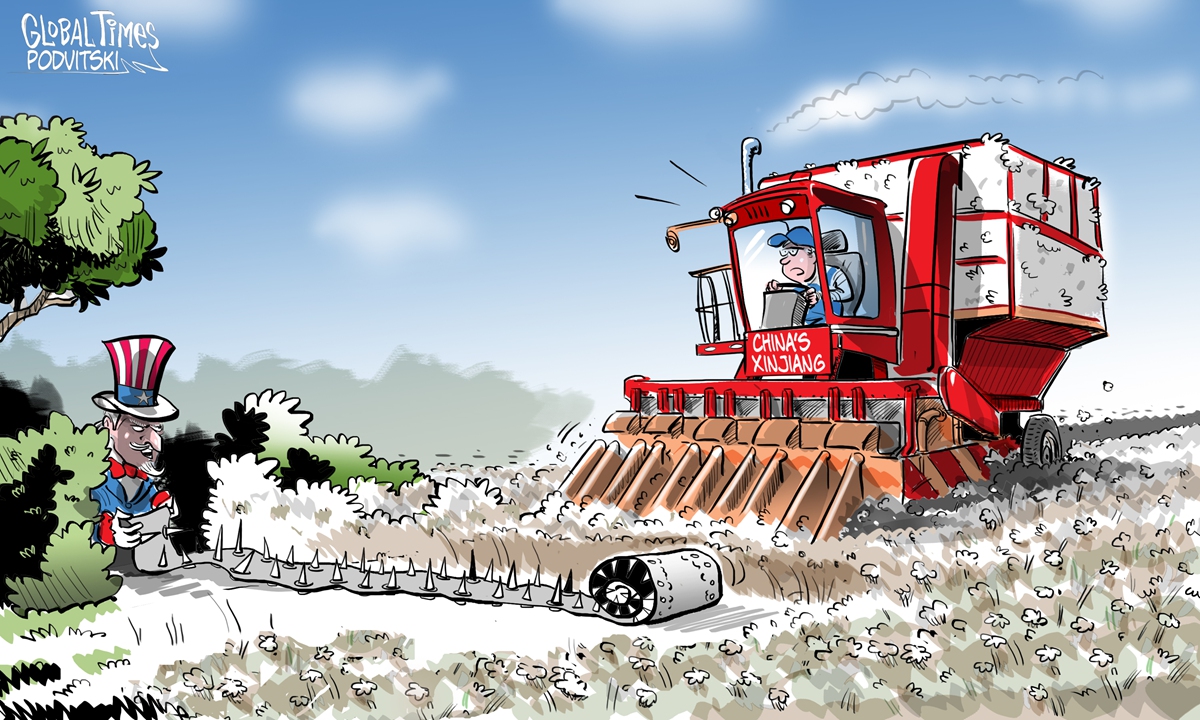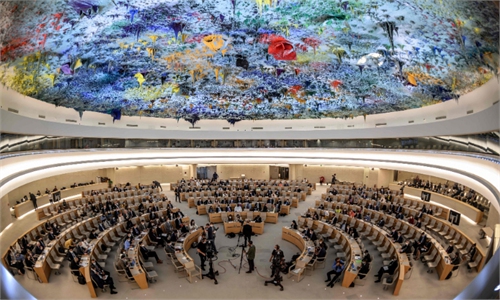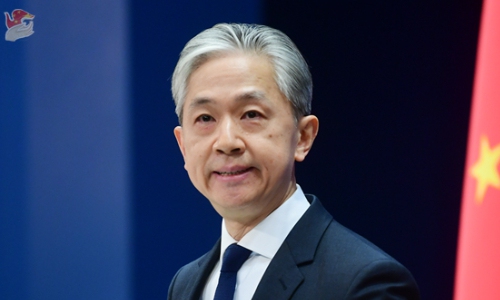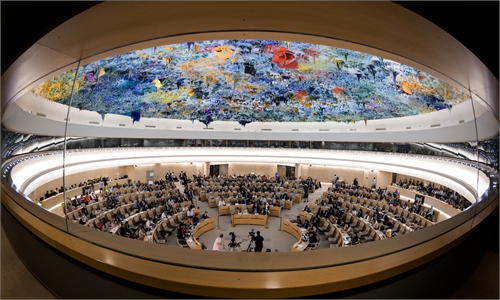So-called observations by UN-backed panel on China’s Xinjiang, Xizang, HK regions ‘unprofessional, narrow-minded’

Xinjiang Illustration: Vitaly Podvitski
The so-called findings that have been published by the UN Committee on Economic, Social and Cultural Rights on China are unprofessional and narrow-minded, especially the contents related to China's Xinjiang, Xizang and Hong Kong regions, highlighting a poisonous trend of using Western standards on political rights to judge developing countries' economic and social development, analysts said.
The UN Committee on Economic, Social and Cultural Rights on Monday released an array of "recommendations" to China and five other countries - Lithuania, Panama, Portugal, Cambodia and Yemen - after the periodic reviews of these countries in a session from February 13 to March 3.
Aside from a small portion recognizing China's measures on the ratification of the ILO (International Labor Organization) Forced Labor Convention and the adoption of the fourth National Human Rights Action Plan, the UN-backed panel listed at great length human rights "concerns" in China's Xinjiang, Xizang and Hong Kong regions and in the fields of judicial independence, data-sharing of COVID-19 and climate change.
The document released on the committee's website on its recommendations wrote that it "urges" China to "immediately bring to an end the violations of human rights" in its Xinjiang region.
China has reiterated that the human rights of residents in its Xinjiang region have been well protected and anti-China forces have orchestrated lies of "genocide" and "human rights violations" to smear China.
The Global Times learned from sources that Chinese officials and experts who attended the hearing at the session gave detailed answers to concerns raised by experts from the Committee and also explained in detail China's efforts to promote human rights, especially in its Xinjiang and Xizang regions.
The Committee rashly made unprofessional and unfair "recommendations." Instead of listening to voices from China, the Committee sourced "information" from anti-China organizations in the US and some Western countries, which make its conclusions on China biased and narrow-minded, Zhu Ying, a professor at the Baize Institute at the Southwest University of Political Science and Law, told the Global Times on Tuesday.
The Global Times learned that before the review, the Committee sought opinion reports from a dozen NGOs, with many being engaged in targeting China, especially on topics of the Xinjiang region. Among them, the World Uyghur Congress (WUC) is a US-backed, right-wing regime-change network seeking the "fall of China," and the Uyghur Human Rights Project (UHRP) is affiliated with the WUC and funded by the US National Endowment for Democracy.
Aside from the information sources, the Committee's assessment is also not fair. Instead of paying attention to China's efforts on poverty alleviation, social security, medical welfare and other fields related to economic, social and cultural developments, the conclusion mainly focused on the Xinjiang, Xizang and Hong Kong regions and violated China's sovereignty, constituting interference in China's internal affairs, said Zhu, noting that China has the right to oppose such "recommendations."
On Monday, the Government of the Hong Kong Special Administrative Region (HKSAR) issued a statement to express its strong objections to the concluding observations on the national security law for Hong Kong issued by the Committee as it disregarded the explanations and clarifications made earlier by the HKSAR Government delegation.
"The recommendations of the Committee to review the national security law for Hong Kong on various aspects are not only totally unfounded, but also utterly perplexing," said the HKSAR spokesperson, noting that the Committee turned a blind eye to the fact that the fundamental rights and freedoms of Hong Kong residents have already been guaranteed at the constitutional level by the Basic Law.
Experts on human rights warned that the biased conclusions on China made by the Committee also highlighted the trend of judging developing countries' economic, social and cultural human rights developments with the West's criteria on political and civil rights.
The rights of economic, social and cultural development, and political and civil rights, are like the two legs of human rights. However, without noting that they are in a different development phase from developing countries, the US and some Western countries insist on using political and civil rights criteria to judge developing countries, which is unfair and exposes their purpose of containing developing countries, analysts criticized.
Zhu warned that the Committee's "observations" will set the prelude for the US and some Western allies to further hype human rights issues, especially on the Xinjiang region, to demonize China at the ongoing 52nd session of the Human Rights Council. For example, the US and its allies will also push the council to hold a debate over alleged human rights abuses in the region.
In October 2022, the US and its allies brought such a motion, but it was voted down 19-17 with 11 abstentions as countries from Asia, South America, Africa and the Middle East banded together.
While the US and some Western countries are politicizing and instrumentalizing human rights topics for their geopolitical strategies, analysts called on UN bodies to remain professional and fair, and try to keep a distance from these political practices.



